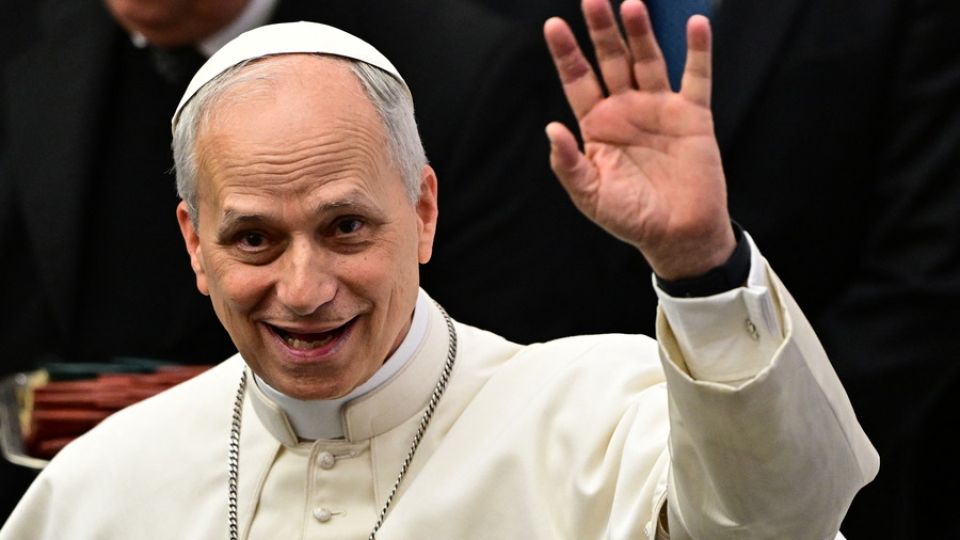May 16, 2025
TAIPEI – Taiwan’s Deputy Foreign Minister Chen Ming-chi told lawmakers earlier in May his ministry will do its utmost to have President Lai Ching-te attend the May 18 inauguration of the new pontiff, Pope Leo XIV.
In the end, however, it was not to be.
Instead, former Taiwan vice-president Chen Chien-jen will be travelling to the Vatican again over the weekend to act as the island’s envoy, less than a month after doing so for Pope Francis’ funeral in April.
Mr Chen, 73, is a devout Catholic and member of the Pontifical Academy of Sciences. He met Pope Francis six times before the latter died.
Neither Taiwan’s Presidential Office nor foreign ministry has elaborated on why Mr Lai will not be attending the inaugural mass.
But analysts told The Straits Times that it likely has to do with the Vatican not wanting to ruffle China’s feathers. The latter claims Taiwan as its territory and has long tried to limit its international space.
This is despite the fact that it is Taipei – and not Beijing – that maintains formal diplomatic relations with the Holy See, its only diplomatic ally in Europe.
It is also a break from the recent precedent of then President Ma Ying-jeou attending the inauguration of Pope Francis in 2013, at a time when cross-strait ties were relatively warm under the China-friendly Taiwanese leader.
“The Vatican would like to have a delegation from Taiwan at the inauguration, but they wouldn’t want something that could be seen as provocation towards Beijing,” said Dr Michel Chambon, an expert on Christianity in Asia and a research fellow at the National University of Singapore.
“So it had to be someone of a lower rank, with no official function, and ideally also Catholic – Chen is a good choice in that regard,” he told The Straits Times.
It is also possible that the Vatican is seeking to continue with the policy of Pope Francis to improve the Catholic Church’s relationship with China, for which the late pontiff said he had “great admiration”.
In October 2024, the Vatican and Beijing extended for four years a landmark 2018 agreement signed on the appointment of Catholic bishops in China.
At Pope Francis’ funeral, a prayer in Mandarin was included, marking the first time the language was used in a papal funeral.
While it is unclear if the new pontiff will extend outreach efforts to Beijing on the same level as his predecessor, experts say that continuing to pursue good ties with China is in the papacy’s best interests.
Not doing so could harm the Church’s image as an international peace broker, said Dr Chambon. “China is such an important country in the world today – the Catholic Church has to embrace it,” he said.
There is also the fact that there are 12 million Catholics in China that the Vatican cannot disregard. The Catholics in China are split between an underground church swearing loyalty to the Vatican and the state-supervised Catholic Patriotic Association.
There are 300,000 Catholics in Taiwan.
“The Vatican stands with Taiwan in their shared values for religious freedoms, but at the same time, we’re talking about millions of people in China who could be Catholic, and the Vatican simply cannot ignore that,” said Professor Yeh Yao-yuan, a diplomacy and Taiwan studies expert at the University of St Thomas in Houston, Texas.
While Taiwan presidents have attended official papal events in the past, they presented logistical complications for the organisers, said Dr Chambon.
“Just imagine the amount of work behind the scenes that went on to accommodate the highest-level delegation from Taiwan, in terms of mobilisation across several places, including Italy (which does not recognise Taipei),” he said, referring to the time when then Taiwan President Chen Shui-bian attended the funeral of Pope John Paul II in 2005.
“Beijing was furious when it found out and stopped its own delegation from going,” Dr Chambon added.
At that time, China’s foreign ministry admonished Italy for issuing Mr Chen a visa, saying that he would use the trip to Rome to promote formal independence for the island.
In 2013, when Mr Ma attended the inauguration of Pope Francis, China, which did not attend that event either, urged the Vatican to sever ties with Taipei.
Attendance at papal events provides Taiwan’s leaders the rare opportunity to mingle with other world leaders on the international stage.
At the 2013 inaugural mass, for instance, Mr Ma was photographed having brief exchanges with then German Chancellor Angela Merkel and then US Vice-President Joe Biden.
Beijing has not yet confirmed if it will be sending a delegation to Pope Leo’s inauguration, but its foreign ministry has sent a congratulatory message on the election of the new pontiff.
“It is hoped that under the new pope’s leadership, the Vatican will continue to engage in constructive dialogue with China and conduct in-depth communication on international issues of mutual concern,” foreign ministry spokesman Lin Jian said on May 9.
But what about the future of Taiwan’s relations with the Holy See?
Dr Chang Iee-ming, a Christian studies expert at National Taiwan University, believes that ties will continue on their current path.
“Taiwan protects human rights and pursues freedom, democracy and justice, and all religious beliefs are fully protected. These are values we share with the Vatican, and the Holy See is aware of that,” he told ST.
- Yip Wai Yee is The Straits Times’ Taiwan correspondent covering political, socio-cultural and economic issues from Taipei.


